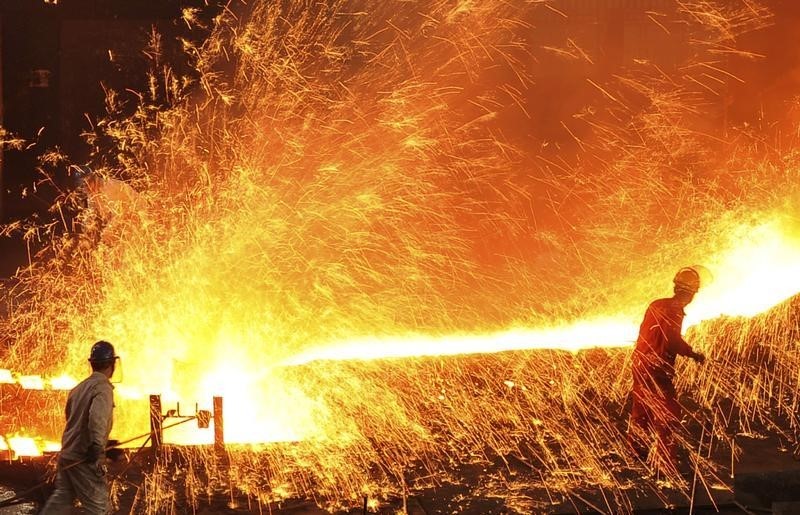(Repeats story published late Thursday; no changes to text)
By Ruby Lian and James Regan
SHANGHAI/SYDNEY, Aug 13 (Reuters) - Two massive explosions at the Chinese port of Tianjin that ripped through parts of the terminal have hit iron ore import operations, as well as disrupting oil tanker arrivals and departures at this gateway to northeast China.
The blasts killed at least 44 people and injured more than 500, officials and state media said on Thursday. ID:nL5N10N4J1
Industry officials said oil and gas facilities at the port had not been affected, but the Tianjin Maritime Safety Administration said oil and chemical tanker arrivals and departures had been disrupted.
A crew member on board the 317,713 deadweight tonne very large crude carrier Samco Europe confirmed they had been told to stop discharging their crude oil cargo at about 0715 GMT.
"The port authority told the ship to stop because there is still a risk of explosion due to the fire. They wanted all activity stopped," said one of the officers on board the ship, adding it was unclear when reloading could restart.
Reuters shipping data showed there were more than two dozen tankers in the Tianjin port region, either waiting to get in or leave the harbour zone.
The docks at the port also contain massive iron ore unloading capacity, making it a key destination for the tens of millions of tonnes of iron shipped from Australia and destined for Chinese steel mills.
Mining giant BHP Billiton (LONDON:BLT) BHP.AX said in a statement that while its iron ore discharging berth had not been damaged in the blast, its port operations and its shipments were disrupted. ID:nL3N10O2PW
Australia's Fortescue Metals Group FMG.AX also confirmed to Reuters that its iron ore operations at the port had been affected, while Rio Tinto (LONDON:RIO) RIO.AX said it was awaiting details of any potential damage.
Some parts of the port's iron ore discharging berth, which was not far from the explosion site, had halted operations, said a Shanghai-based iron ore trader. About 7 million tonnes of iron ore are stored at these parts of the Tianjin port.
"Depending on to what extent these operations have been disrupted, it could affect the flow of iron ore into China," another trader said.
Dalian iron ore futures DCIOcv1 hit a five-week high on Thursday. IRONORE/
According to industry portal Mysteel, a berth with a daily iron ore throughput of about 60,000-70,000 tonnes had been sealed off and ships were unable to dock.
It said steel mills were still holding inventories equivalent to one week of production, so the postponement of deliveries was not expected to affect steel production.
An official with a Tianjin crusher owned by the Beijing Grain Group said several hours of disruptions to soybean cargoes had been resolved.
Oil and gas facilities, including the 270,000 barrels-per-day Tianjin refinery operated by Sinopec Corp 0386.HK and a 2 million tonne-per-year floating liquefied natural gas (LNG) terminal run by CNOOC, were operating normally, company and industry sources said.
A Sinopec Corp media official confirmed that its Tianjin refinery, which is located about 45 km (28 miles) from the affected zone, was running normally. The refinery, one of the largest in northern China, handles its crude oil and fuel vessels at Nanjiang port, a separate part of the Tianjin port.
